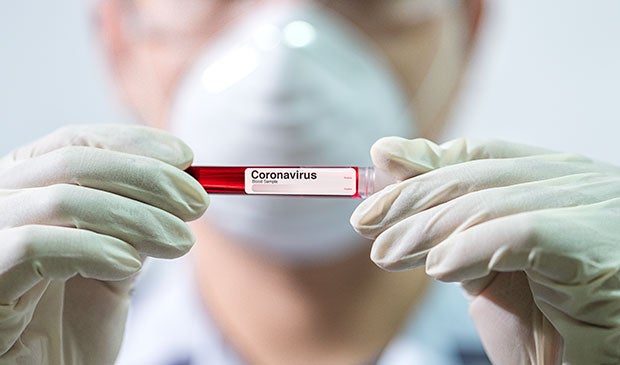

Hospitals Prepare for Influx of Patients with Coronavirus

As the COVID-19 outbreak continues to challenge hospitals and health systems nationwide, many are responding with innovative solutions and new protocols to ensure patient safety.
Leveraging telehealth services and moving testing and triage efforts associated with the new virus outside hospital walls, provider organizations are rapidly shifting initial points of care and the ways they engage with the public.
Emergency Department Triage
New York-based Northwell Health has a new procedure for greeting walk-in patients: “Ask and mask everyone,” John D’Angelo, M.D., senior vice president of emergency medicine services for the health network, recently told NBC.
A greeter or nurse questions patients upon entry about whether they have traveled recently to a location that is experiencing an outbreak or whether they have had close, prolonged contact with someone who was confirmed to have the virus. If they have or if they display symptoms of the virus, a face mask is donned by the patient who is then taken to an isolation area.
Online Symptom Checker and Virtual Tools
Like many other hospitals and health systems, Northern California-based Sutter Health is encouraging 3 million patients to use its virtual tools before entering its hospitals. Patients are directed to Sutter Health’s online medical symptom checker and to consider making telehealth appointments.
Off-site and Drive-through Services
Some hospitals, including the University of Utah Hospital in Salt Lake City, have set up tents outside their facilities to minimize the risk of exposure to infected patients. Others, like Advocate Good Shepherd Hospital in Barrington, Ill., have established drive-through testing services. Patients first must make an appointment and contact their primary care physicians to coordinate the test with the local health department to get specific permission.
Hospital Toolkit for Coping with COVID-19
Mass General Hospital leaders, like many of its peers, has conducted exhaustive contingency planning to find flex spaces to accommodate more COVID-19 patients if a surge occurs. Potential solutions include canceling elective surgeries to free up space, establishing a pop-up clinic to evaluate people with COVID-19 symptoms and expanding virtual care services.
Mass General, one of 10 medical centers nationally to receive federal funding to handle patients with Ebola and other special pathogens, acted quickly to address COVID-19 when it first began spreading in China. The organization wrote a handbook for preparing and coping with the disease that has been used and adapted by other hospitals in the U.S. and abroad.
AHA Resources and CDC Hospital Preparedness Assessment Tool
more information on COVID-19 and how to respond? The AHA has created a special COVID-19 webpage that provides frequent updates and resources. In addition, the Centers for Disease Control and Prevention offers a COVID-19 Hospital Preparedness Assessment Tool.



